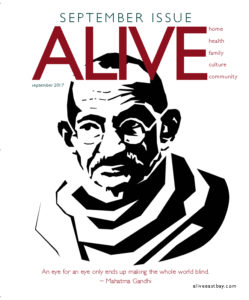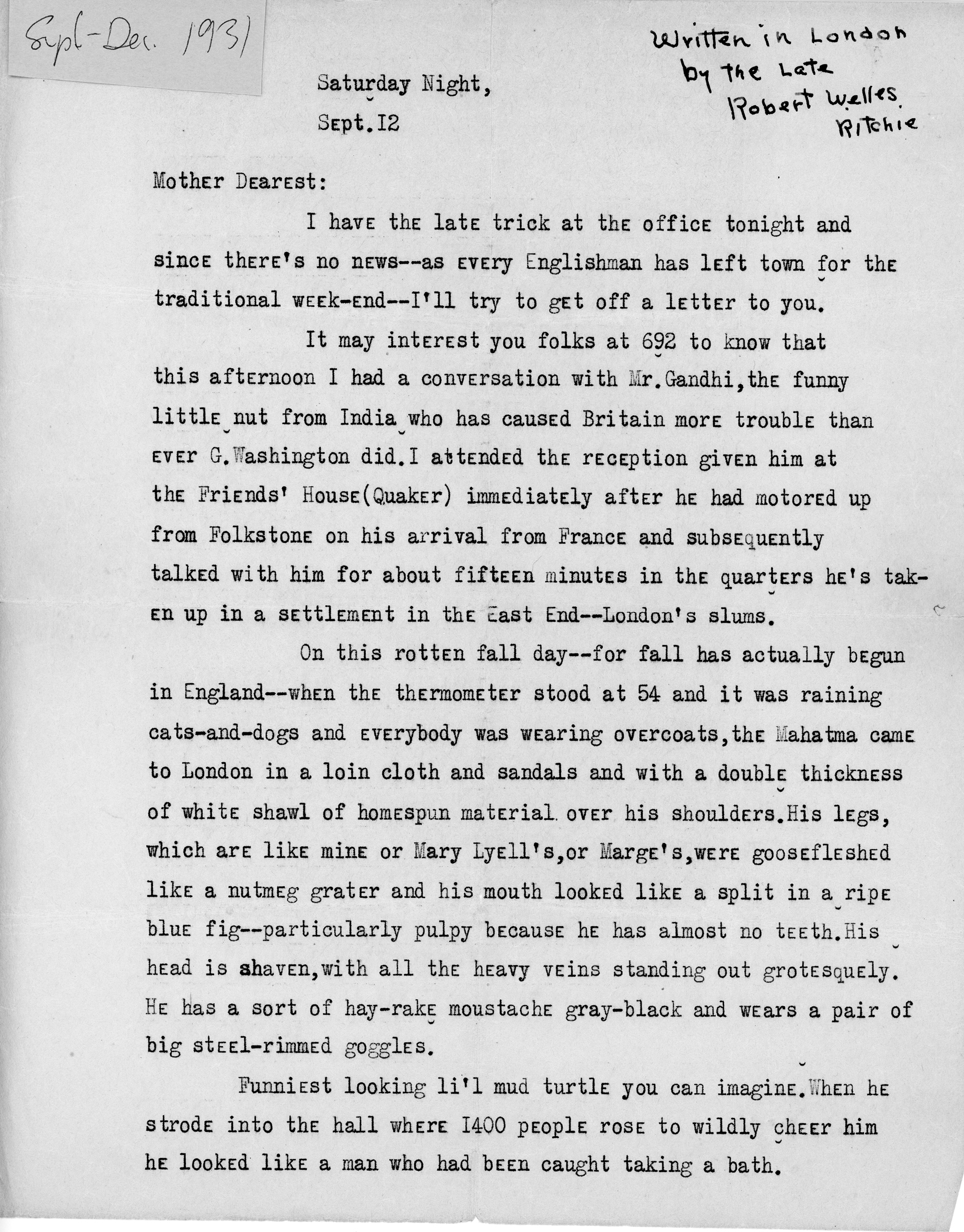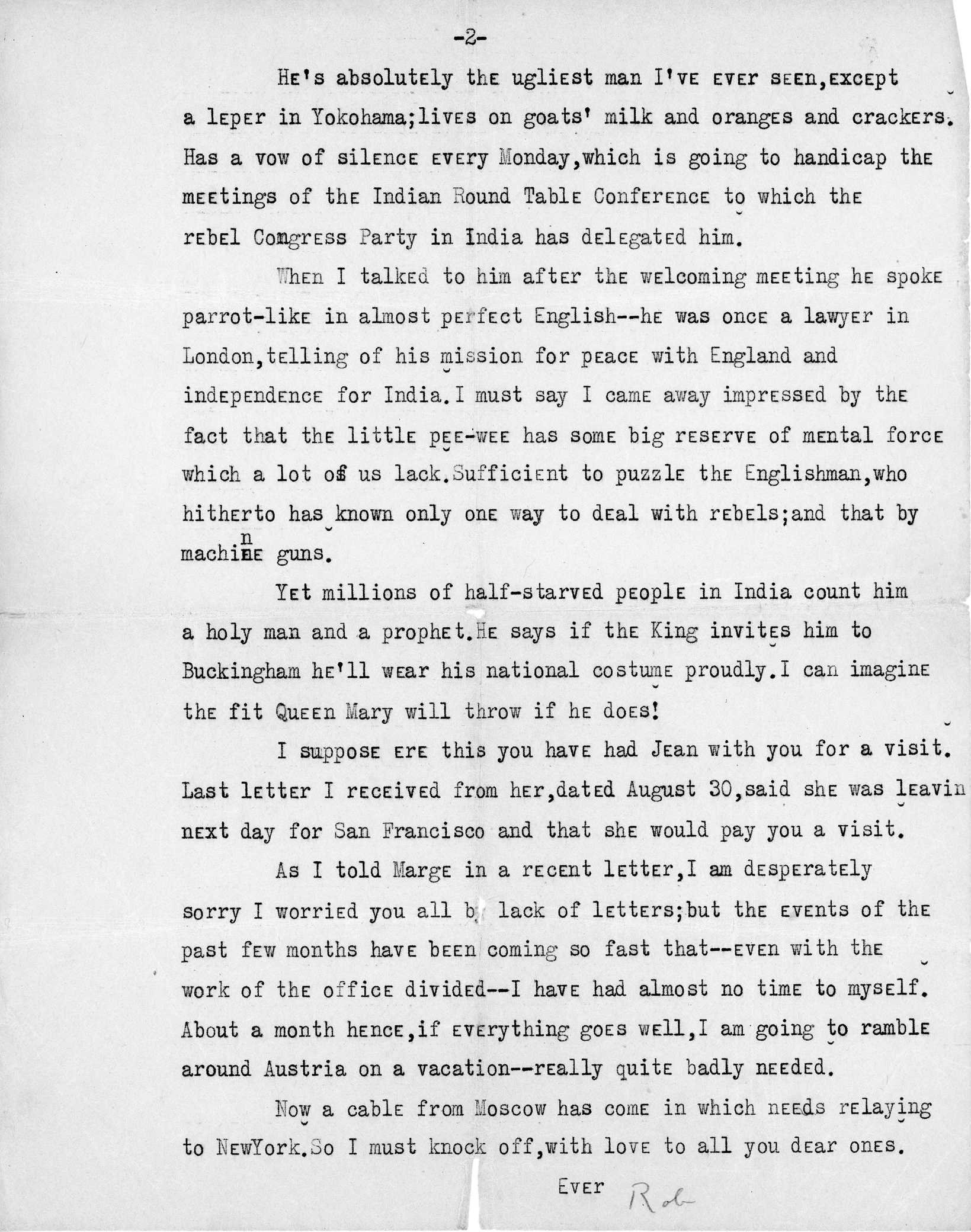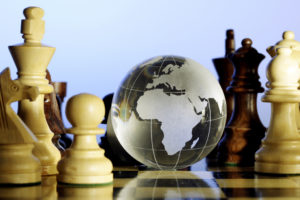Be Mindful of The 3rd Law
Regardless of where one stands on the removal of Confederate statues and monuments I’m sure everyone would agree that the recent, ultimately tragic events in Charlottesville, Virginia, got very far out of hand.
A few legitimate, important questions that ought to be answered are, “Why did the Charlottesville city government issue permits to two opposing groups—groups with obvious hatred towards each other—for events on the same day, in the same area? And, considering the issuance of those permits, why then wasn’t there adequate preparation by law enforcement for what was sure to be a volatile situation?” It looks to me as though either the city officials in Charlottesville wanted a violent eruption, or they have as much combined intelligence and common sense as a bag of hammers.
Despite what appears to be the consensus of media and politicians’ opinions aligned against President Trump, I tend to agree with his assessment—that both sides are to blame for attacking each other. But even more than this, I blame the leadership of the Charlottesville city government and law enforcement for not acting sooner, in order to prevent the melee and its ensuing tragic loss of life.
With numerous rallies and events concerning similar, emotionally charged issues no doubt to come, it would be good to remember that oftentimes, physical laws can be appropriately applied to emotional situations and human relations. For example, in its best recognized form, Newton’s third law of motion states:
For every action, there is an equal and opposite reaction.
Or, as a more precise definition states it:
When one body exerts a force on a second body, the second body simultaneously exerts a force equal in magnitude and opposite in direction on the first body.
Obviously, this might be a good “law” for everyone to keep in mind when it comes to such inherently-volatile situations. Who’s right and who’s wrong are beside the point; if you push, it’s a near certainty that you’re going to get pushed back. Human nature (and Newton’s third law) has confirmed this to be true for eons.
The Future: Where do we go from Here?
It does little good to keep looking back, unless we are focused on what needs to be changed while moving forward. What approach shall we take in our efforts to affect societal change through freedom of speech and expression, that best eliminate the risk of cracked skulls and destroyed property? Fortunately, there some good examples offered in history, if we have the desire (and wisdom) to seek them out.
My brother-in-law recently came across an old family letter that might suggest one such example. Written by my wife’s great uncle, Robert Welles Ritchie, in 1931, it was a personal letter to his mother.
Robert Welles Ritchie was a prolific writer; a novelist, screenwriter for a number of black and white short films, as well as the author of numerous articles and short stories for publications like Harper’s Magazine. He was also a correspondent for the New York Post, in which capacity he met with and interviewed several notable people, such as Admiral Robert Peary, and Mahatma Gandhi. It was his meeting with Gandhi that was the subject of his letter to his mother.
Of course, Gandhi is considered by many to be a prime example—the epitome, perhaps—of a leader who championed non-violent tactics as means to affect meaningful change on a massive scale. He well knew the laws of physics—and human behavior—and used that knowledge to gain peace with England and independence for an entire nation.
In reading this rather brief letter, you not only get a sense of what Gandhi was like, but you can also see the impression he made upon Ritchie, as he described it:
When I talked with him after the welcoming meeting he spoke parrot-like in almost perfect English—he was once a lawyer in London, telling of his mission for peace with England and independence for India.I must say I came away impressed by the fact that the little pee-wee has some big reserve of mental focus which a lot of us lack. Sufficient to puzzle the Englishman, who hitherto has known only one way to deal with rebels; and that by machine guns.
I am by no means a pacifist. In times when hostility is certain or when self-defense or the defense of the innocent require it, the use of force—and yes, even war—is justifiable. But prior to that “no turning back” point, if we are wise, we will know that the laws of physics—of human nature—will overcome our better natures if we allow it, and then all we accomplish is further division and animosity.
By all means, protest; demonstrate, and voice your opinion… but allow others to exercise the same right, always taking into account Newton’s third law. You will never win others over—you will never change the minds and hearts of others—using brute force. All you get by pushing is more pushing—but now, in your direction, against you! Hit someone and they’ll likely hit back with even more force.
And trying to change one’s thinking by smashing a statue of Robert E. Lee will be about as effective as trying to change someone else’s mind by defacing a statue of Martin Luther King. This kind of “protest” might make one group feel good, but in terms of change, it only serves to move everyone backwards.(Again, in practical terms, “as smart as a bag of hammers” applies here too).
The best strategy to effect change is to truly win others over to your way of thinking—or at least get them to “agree to disagree” on civil terms, and Gandhi provides a good example as to how success is eventually best achieved.
Shown below is a copy of the letter written by Robert Welles Ritchie to his mother, September 12,1931, describing his meeting with Mahatma Gandhi in London.
Be Inspired
Some of my fondest memories of growing up are of times I spent with my cousins in Los Baños. As a young boy, every summer until about age twelve, I spent a week there. My uncle, Wayne, worked as an executive for a large farming company, and the family lived in a sprawling home surrounded by thousands of acres of farm land.
It was more like a compound than a family home, and staying there was like being at a resort; there was an Olympic-sized swimming pool with a surrounding cabana, a guest house, horse corrals and a barn, all nestled between acre-sized lawns and enormous beds of blooming flowers. While I don’t know if it’s true, I was told that their house was once the vacation residence of Ernest Lawrence, the inventor of the cyclotron and namesake of Lawrence Livermore and Berkeley National Laboratories.
Despite living on what could only be described as an estate, my aunt never put on airs—she was as personable and down-to-earth as one could imagine, and she always made my visits with them times I would forever remember.
One time in particular that I can still recall perfectly in my mind was one warm summer evening when she offered me and my cousin, Jim, popsicles. We of course obliged as she then suggested that we all go out—way out—onto the front lawn and lie down and gaze at the stars. Soon, there we were, the three of us, some fifty yards or so from the house, flat on our backs looking up at a coal-black sky blanketed with shimmering diamonds.
It was breathtaking. It was a moment of inspiration that began a life-long love and interest in Astronomy.
As I write this, the world awaits a spectacular event—a total eclipse of the Sun.The next one visible in North America won’t occur until 2024. By the time you’re reading this, you either “caught the bug” and went outdoors to witness the event, or passed it off as no big deal, continuing with your usual routine. I hope you chose the former.
But don’t feel bad if you missed it; tonight offers the opportunity for another experience that could well be just as moving. Simply go outdoors, somewhere as far away from city lights as you can find, spread out a blanket and lie down. As you look heavenward you’ll see what is always overhead, every night—it is God’s canvas—that same coal-black sky filled with diamonds.
Whether by an eclipse, or just a warm, summer evening with loved ones, may you too be inspired.
Shame on U.C. Berkeley
One of the hallmark characteristics of liberty is the protected right to share and express ideas—even unpopular ones. “Freedom of Speech,” as it is often referred to, is part of the First Amendment to our Constitution; listed among the first “God given” freedoms identified in the Bill of Rights.
To place a value upon this right one must consider the American lives lost in the cause to preserve and protect it. Truly, it is among the sacred rights, bought and paid for by the blood of patriots. We each have a duty to respect, defend, and uphold it, for when we do not, we dishonor the men and women who paid dearly–many with their very lives–to secure it for us.
The full text of the First Amendment is:
Congress shall make no law respecting an establishment of religion, or prohibiting the free exercise thereof; or abridging the freedom of speech, or of the press; or the right of the people peaceably to assemble, and to petition the government for a redress of grievances.
Now if you have been paying attention, you know that the right of free speech has been under attack lately. And while it is true that there are certain limits to this freedom (yelling “fire” in a crowded theater is often cited as an example of using speech in a manner that is illegal), there are apparently a good number of citizens–many who likely claim to be well educated–who don’t understand what freedom of speech is or what it means.
In fact, when you read our feature article, Risk, Reward, and Republicanism, by Bradley Devlin, Secretary of the Berkeley College Republicans (page 20), you’ll discover that among the worst, chronic offenders in the assault on free speech is the very administration at what was once a standard-bearer in causes for freedom and liberty–the University of California at Berkeley.
When the controversial, firebrand speaker, Milo Yiannopoulos, was scheduled to speak at the U.C. Berkeley campus last February, he was prevented from doing so by a large group of individuals (students and non-students) who became violent, destroying school property and threatening anyone who dared support this free speech event. The event became an all-out riot, as the campus police simply stepped back and allowed the anarchists to have their way.
Later in the year, conservative speaker, Ann Coulter was scheduled to speak, but the U.C. administration would not allow it because they “couldn’t ensure her safety.”
The real tragedy in all of this is that, while the young students who opposed these event might be excused because they are simply too immature or ignorant to realize their error, the so-called adults in the U.C. administration surely know better.
Shame on them for not standing up for free speech. Shame on them for dishonoring those men and women– the ones mentioned previously, with courage that they, apparently, do not possess.
Top of the Hour Power
July is celebration month for Americans. We have Independence Day, summer vacations, picnics, good weather—the whole package. Generally, I’d say most people tend to be in good moods in July.
Of course we all know that nobody is happy all of the time… but don’t you know a few people that make you wonder about that? You know, the “positive” people; the ones that make you feel better whenever you’re around them. These are the people in your life that never make their problems your problem. They always encourage and edify, and their cheerfulness stems for an honest joy of living. These are the kind of people that I hope to be more like. 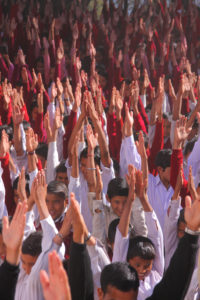
My aunt Rachel, cousin Susan, and brother, Richard top my list, along with my friends Bob, Tom, Joe, Amhad, Mike, Terry, Dee, Richard, Ann, Rodney, and many others. I suppose creativity has something to do with this “positivity gene” as well, as most all of the writers and authors I work with tend to be this way, too.
Being positive doesn’t mean ignoring the world’s problems however; it just means that positive people tend to offer solutions. With that in mind, here is a poem (the author, being one of my positive-thinking friends, wishes to remain anonymous), offered in the hope of creating a movement, intended to bring peace to our world:
Top of the Hour Power
Only one man-made standard throughout our great earth
tis the measure of time as each hour gives birth.
The Tops of the Hours occur at the same time
an invisible chain linking all of mankind.
And we all have in common a power so dear
our own private thoughts that no one can hear.
No matter what country or race or divide
what we say in our minds we don’t have to hide.
What if prayer were offered to God in this way
at the Top of the Hour from L.A. to Bombay?
No country nor army nor ruler of man
would wield enough power to stop or withstand
the linking of minds throughout every nation
tis our weapon of Love will ensure our salvation.
Whenever you choose, come join this great throng
at any Top of the Hour you can pray right along.
So what prayer should be offered in this glorious game?
“Our Father, who art in heaven, hallowed be thy name…”
Every language and race and age He will hear
giving hope to us all so no one will fear
the evil on earth which threatens us so.
With the power of Love our enemies will know
at the Top of the Hour our weapon of choice
is the power of prayer offered up with one voice.
 Feel free to pass this poem along to everyone you know, along with my wishes to all for a joy-filled July!
Feel free to pass this poem along to everyone you know, along with my wishes to all for a joy-filled July!
Not Dancing in a Mirror
While it was not officially branded as such, our February 2014 issue was a “special” edition of ALIVE—at least to me it was. If you’re a regular reader you may remember; it was our ALIVE… for the love of chess issue, and most of the editorial in the magazine that month had something to do with the game of chess.
Now I realize not everyone loves or even plays chess, so let me be clear—this article isn’t really about chess at all, it’s about people, and how playing the game has afforded me the opportunity to connect with players all over the world.
Prior to the internet, if you wanted to play chess with someone far away, your only option was to play chess by mail, via the good old U.S. Postal Service—but those games could easily last months or even years. Then, in about 1990, email was introduced and you could play using one of the few email services like AOL. While that moved things along at a much better pace, you were still limited in terms of who you could play with. The fact was, unless you belonged to a chess club (something few and far between) one’s entire chess-opponent-universe consisted of people you already knew; those friends and relatives who just happened to enjoy playing chess too. In my case, that meant my dad, my younger brother, one friend, and one cousin that I only saw at family get-togethers a couple of times a year.
Of course by then there were chess programs that allowed you to play against your computer, but computer chess just wasn’t the same experience as playing with another person. It was like dancing in a mirror—dry, cold, and unsatisfying.
By the time I graduated from high school, chess had moved pretty far into my life’s rear view mirror. In the years that followed, every so often I’d encounter someone who played, but it was pretty rare.
Then came the iPhone.
I was a Blackberry user until about 2008 when I switched to my first iPhone. I used it primarily for business, so email and calls were about it for me. I had little use for apps, and while I knew there were chess apps, I assumed they were all just mobile versions of computer play. For several years, I never really thought about my iPhone in terms of playing chess (I know, pretty dumb of me).
Then, in 2012, something clicked in my head. I had the urge to play chess but had no one close by to play with, so I began searching the app store to see what was available. I discovered several different apps that facilitated live play and after trying out a few, I settled on an app called Social Chess. There was a free version that allowed you to play up to five games at a time, which I tried for a month or so, but soon decided that the enhanced benefits offered in the paid version were well worth the $9.95 price.
Now, five years later, I have to say that the real benefit of the Social Chess app has less to do with the chess and more to do with the “social” than I could ever have imagined. I have played chess with people in nearly very state in the U.S., as well as countries all over the world, including Russia, Australia, Germany, France, Indonesia, Cuba, India, Mexico, Iran, Ukraine, Malta, England, Spain, Brazil, Japan, and many others. All totaled, since July 2012, I have played a total of 2,185 games (1,138 wins, 953 losses, 94 draws).
The best part of this system is that alongside your chess games, you can converse through a text add-on function, enjoying conversations with your opponents. I’ve made some very interesting acquaintances, learned a lot about much more than chess, and best of all, have made some wonderful friends that I never would have met, if not for our mutual interest in chess.
Today, I typically have anywhere from a dozen to thirty games going at any one time, so it’s not uncommon to have an amazing geographic cross section of conversations happening all at once. For example, right now I have 18 games going with two different players in Mexico, two in Russia, one in India, one in Germany, one in Michigan, two in New York, one in Florida, one in Berkeley, one in Louisiana, and one in Los Angeles. Another five of my current games are with players who prefer to play without revealing their location.
Of course, just like anyone you meet in life, not everyone who plays wants to connect much beyond the game itself. Some partake in the app for the game alone, and while I’m fine with that, I much prefer playing with the people I’ve met who have become friends.
Take the last two I listed of my current games for example. The player in Louisiana, Matt, is a husband and father who works on a barge that travels up and down the Mississippi River and into the Gulf of Mexico for extended periods. We’ve been playing for about four years and have a game going almost all the time. He often has to work on holidays, so I know our games during those times become a good way for him to pass the time until he can reunite with his family. I’ve learned a lot about the work Matt does, but more importantly, about the kind of man he is. I have learned that his family has good reason to be very proud of him.
The player in Los Angeles, Felicity Ann, has become a very good, close friend. She has even become an occasional contributing writer in ALIVE (she’s listed in our masthead), and had her first article in that special 2014 chess issue. Felicity currently works as a bakery manager, volunteers at her local library, and is multi-talented artist to boot. We exchange gifts at birthdays and holidays, and she is one of the brightest, most thoughtful people I’ve ever had the pleasure to know.
Who would have guessed that of all of that can be learned from playing lots of chess, and considering that chess was created as a substitute for war, isn’t it ironic that the best thing about it would be learning about other cultures, other people, and most of all, making new friends.
Yes, I certainly do enjoy playing chess, but unlike dancing in a mirror, it really is the game’s connection with people that makes it worthwhile playing at all.
Often referred to as “The Royal Game,” chess is considered, by most accounts, the world’s oldest game, having been played at least since the sixth and probably fifth century. The game is thought to have originated in India, although some argue that China was its true birthplace. The earliest known literary reference to chess was from India, in a Sanskrit romance called The Vasavadatta, in 590 A.D. Another, slightly later reference comes from Persia, from about 600 A.D., in another ancient romance called Kárnamák.
The Game of Chess is not merely an idle amusement; several very valuable qualities of the mind, useful in the course of human life, are to be acquired and strengthened by it, so as to become habits ready on all occasions; for life is a kind of Chess, in which we have often points to gain, and competitors or adversaries to contend with, and in which there is a vast variety of good and ill events, that are, in some degree, the effect of prudence, or the want of it. By playing at Chess then, we may learn: 1st, Foresight, which looks a little into futurity, and considers the consequences that may attend an action … 2nd, Circumspection, which surveys the whole Chess-board, or scene of action: — the relation of the several Pieces, and their situations; … 3rd, Caution, not to make our moves too hastily…
Benjamin Franklin, “The Morals of Chess” (article) (1750).
Just Ask: How Are Your Doing?
I recently saw a news story on TV about people who had survived jumping off the Golden Gate Bridge. The story included the accounts of two men who had both decided to take their own lives relatively early in life. One man, now in his mid thirties, jumped when he was only in his late teens.
Out of the estimated 1,700 people who have jumped off the bridge, only about 30 have survived. The experience for both men was nearly identical in terms of how they felt and what they realized, just moments after their hands left the rail—instant regret and the realization that they had made a fatal mistake.
 One of the men, Kevin Hines, was only a teenager when he jumped in September 2000. He explained how, as he walked out on the bridge walkway, he had hoped someone passing would ask him if he was “okay,” because he had made up his mind that that would be his indicator—the only “sign” he needed—to change his mind and not jump. When one woman finally did stop him, sadly, she did not pick up on the despair in his eyes, and only asked him to take a picture. He obliged, handed back her camera, then leapt over the rail. In his own words, Hines explained, “I said to myself, ‘What have I done, I don’t want to die, God please save me.’ The moment I hit freefall was an instant regret – I recognized that I made the greatest mistake in my life and I thought it was too late.”
One of the men, Kevin Hines, was only a teenager when he jumped in September 2000. He explained how, as he walked out on the bridge walkway, he had hoped someone passing would ask him if he was “okay,” because he had made up his mind that that would be his indicator—the only “sign” he needed—to change his mind and not jump. When one woman finally did stop him, sadly, she did not pick up on the despair in his eyes, and only asked him to take a picture. He obliged, handed back her camera, then leapt over the rail. In his own words, Hines explained, “I said to myself, ‘What have I done, I don’t want to die, God please save me.’ The moment I hit freefall was an instant regret – I recognized that I made the greatest mistake in my life and I thought it was too late.”
When I heard this my heart sank. How likely is it that so very many others of those who did not survive had these same exact thoughts? It is the picture of tragedy nearly too painful; too dreadful to consider.
This past April, construction began on a suicide prevention net on the Golden Gate Bridge. While this is a laudable project, the real solution to this kind of problem lies elsewhere. In some cases it’s addressing the needs of the mentally ill, but in many others—probably the majority—the solution can only be found within each of us. It has to do with how we see each other and whether we allow ourselves to be vulnerable—to lower our guard enough to truly empathize with others, and take the time to do so.
In my religious tradition, we believe that evil exists and that the “head” of evil is sometimes called the “Great Deceiver” or “The Father of Lies.” One of his greatest, most common lies is to have people believe they are “worthless” beings; people without value or purpose. Both of the men in that TV special had been deceived, as they instantly realized the moment they jumped. They, like everyone—like you and like me—are special, unique creations of a loving God who wants each of us to live full, meaningful lives of joy and love.
So, the next time you’re off on vacation and you stop and ask someone to take your picture, be sure to look in their eyes for at least a moment and connect. They may just be waiting for you to ask them an important, life-altering question like, “How are you doing?”
A Special Kind of Stupid
In recent news it was reported that BART is losing somewhere between $15 million and $25 million per year due to riders who intentionally evade paying fares—“cheaters.” In one report on KTVU, reporter Amber Lee interviewed one of the cheaters—a young female college student—who admitted, on camera, that she rode BART regularly (daily) without paying. With a sheepish grin she remarked, “No, I don’t feel bad about it because, for one, I need to get where I need to go.” She further excused her theft habit by explaining that she didn’t have enough money for the fare because she didn’t have a job.
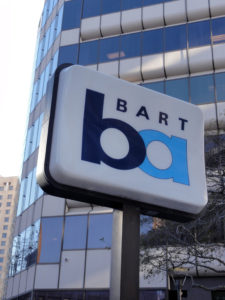 Later in the KTVU report, BART Director Bevan Dufty said with a smile (that was oddly similar to the college student’s) that “fixes” for the problem could take a “little while” because “BART is not as fast moving as our trains are…”
Later in the KTVU report, BART Director Bevan Dufty said with a smile (that was oddly similar to the college student’s) that “fixes” for the problem could take a “little while” because “BART is not as fast moving as our trains are…”
Let’s put this admission into the proper perspective for a moment. While the bulk of BART operations are funded by riders’ fares, about 25% of operations rely upon taxpayer dollars. Add to this the billions in additional taxpayer funding for expansion and improvement projects and it’s clear, whether you ride BART or not, we are paying a lot for this transit system. This past November alone, Bay Area residents agreed to an additional $3.5 billion dollars in sales taxes to fund improvements to the system.
Now for a little more perspective, let’s think about how long BART has been in operation. I believe this coming September will mark its 45th year. Even assuming that those “cheater losses” were considerably less in previous years, the executives at BART just told us that due to their incompetence, at a minimum, hundreds of millions of taxpayer dollars have essentially been “flushed.”
Is it just me, or does this strike you as just plain stupid? Apparently these losses don’t impact Mr.Dufty’s take-home pay, nor does it affect the compensation of BART management. But it ought to. If BART was operated without the “welfare” benefit of taxpayer dollars (like a business) this kind of operational “oversight” would have been handled in year one.
The sad fact is, when it comes to so many taxpayer-supported agencies, programs, and services like BART, proper accountability and fiscal responsibility are generally after-thoughts at best. And as stupid as all this might seem, there is apparently a special kind of stupid in California these days—it’s those who continue voting “yes” for tax increases that continue to prop up incompetent, misguided services like BART.
Rejoice, World Class Poets of the East Bay
I am so happy to report that our first annual poetry contest was a terrific success. Even though the window for submissions was relatively brief, we received a good number of them—so many in fact, it was a challenge to rate them in the few days available to do so.
Before I get to the punch line in announcing our winner, I would like to express my thanks to all of the poets that took the time to submit their work. I hope you all know that when it comes to artistic expression in any form—be it poetry, painting, photography, prose, music, or something else—ratings of any kind are always, purely subjective. It was obvious to everyone here at ALIVE that sincere, creative effort went into every poem we received, and we enjoyed reading each and every one, without exception.
I must confess that our contest was the brainchild of the award-winning poet / writer / editor, Nadine Lockhart of Poetry Flash. Although we’ve received numerous, unsolicited submissions from poets over the years, it was Nadine’s enthusiastic, creative approach that motivated us to embrace the idea for this annual contest. We leaned heavily upon Nadine’s enormous knowledge and talent in judging the poems we received, and cannot thank her enough for all of the work she invested to help make this month’s ALIVE special.
Ironically, of the dozens of submissions that we received, it just so happens that one of the very first ones submitted was unanimously chosen as the winner of our contest. It is “Zephyr” by Ricardo Tavarez of Oakland. Congratulations, Ricardo!
In addition to Ricardo’s poem, we felt that two others deserved honorable mention: “Cesar Chavez,” by Juan R. Sequiera of Pleasant Hill, and “With Every Step I Take,” by Avotcja of Emeryville.
Thanks again to all of you who participated in our first poetry contest. We look forward to seeing more of your creative work next year!
ALIVE Poetry Contest
April just happens to be National Poetry Month and here at ALIVE, we want to showcase our local poets. With that in mind, we are calling for poetry submissions for what we hope will be our first annual poetry contest.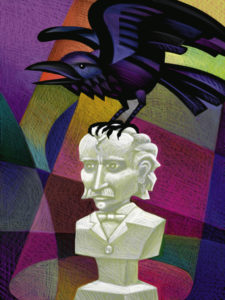
The guidelines for our first go at this are simple:
- We will award a $100 Diablo Jewelers gift certificate to the winner in each of two categories—Young Poets, ages 12-17, and Adults, 18 and older.
- Anyone within ALIVE’s distribution area is eligible (if you’re reading this, like to write poetry, and are at least twelve years old, you can enter).
- You may submit up to three poems, and there is no cost to enter.
- You may send your poem(s) as WORD file attachments by email to info@aliveeastbay.com, or via US Mail to ALIVE Magazine, 3200-A Danville Blvd., Suite 204, Alamo, CA 94507.
- Previously published work is okay, though please note where and when it was previously published, along with your submission.
- All submissions must be received at our office in Alamo no later than March 20, 2017.
Shorter poetic works are preferred over longer poems, partially due to publication restraints. Sonnet length is a beautiful thing—14 lines, though sophisticated Haiku (3 lines of 17 syllables in a 5-7-5 format) may be chosen. On the other hand, so might longer poems of merit; however, there is a 40-line limit.
We love surprising, creative, unexpected word art; we don’t love clichés or narratives with overt messages. We are looking for “music and mystery” in the lyric; whole lives in the images.
By submitting your work, you are granting us permission to publish it in ALIVE Magazine, at our discretion, however authors will otherwise retain copyright to their work.
Please include complete contact information with each poem submitted, including name, address, email, and phone number.
The winning poems will be published in the April issue of ALIVE, along with other selected “poems of merit.”
On your mark… get set… ready… write!
